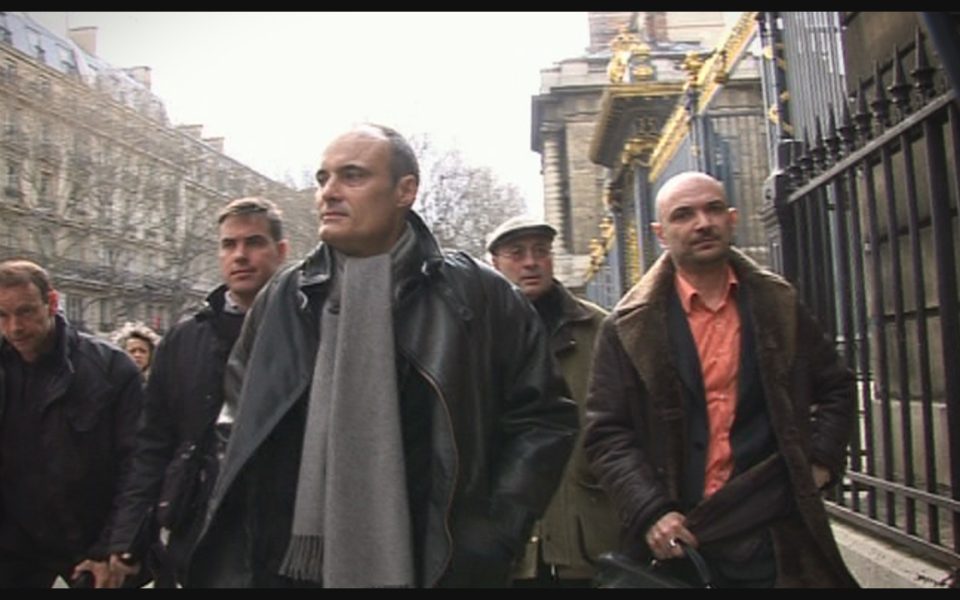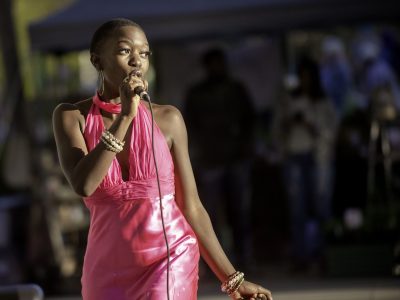by Sayaka Matsuoka
Long before two terrorists launched the attack on Charlie Hebdo that killed 12 people earlier this year, a French film titled It’s Hard Being Loved by Jerks followed a similar controversy from back in 2006. Charlie Hebdo has always pushed the limits of satire in its weekly newspaper through its cartoons. Several of the members of Charlie Hebdo staff have been sued throughout the years, but the monumental 2006 case resulted in nationwide debate surrounding the ideas of freedom of speech, censorship and the fine line between satire and provocation.
A screening of the documentary kicked off Geeksboro’s Rendez-Vous with French Cinema film festival on March 13, opening to a modest crowd of about 15 people. Owner Joe Scott prefaced the film with a short speech about how people should be mindful and respect all religions, noting that any religion is capable of being violent at the hands of violent people. With the recent surge in media coverage of such radical Islamic groups as ISIS and Boko Haram, the film could be viewed by some as another attack on the religion, but Scott urged viewers to keep an open mind.
Nine years ago, the publication reprinted 12 cartoons of the prophet Muhammad from the Danish newspaper Jyllands-Posten and added one of their own: a weeping Mohammad saying “C’est dur d’être aimé par des cons,” or “It’s hard being loved by jerks,” on the cover. Immediately following the release of the paper, the Grand Mosque of Paris, the Muslim World League and the Union of French Islamic Organisations all sued Charlie Hebdo, claiming the cartoons were blasphemous and racist, namely one originally from Jyllands-Posten, of Mohammad with a bomb in his turban. Fast-paced and shot in a play-by-play style, It’s Hard Being Loved by Jerks takes viewers on the complicated back-and-forth timeline of the lawsuit and overall controversy.
The documentary presents several interviews with Charlie Hebdo employees — many of whom were killed in the 2015 attack — lawyers from both sides and those opposing the newspaper to create a comprehensive, behind-the-scenes look at the events leading up to the lawsuit. Scenes capture the witty Charlie Hebdo editorial meetings starring primary characters like cartoonists Jean Cabut, Stéphane Charbonnier and Philippe Honoré. Because so many of the stars in the film, including all three of the aforementioned cartoonists, were killed in the attack, the film becomes a poignant homage to their memories. These were key players in the fight to maintain freedom of speech in France; they died supporting that cause.
Although recent events lend viewers a harrowing lens through which to view the film, the documentary is light and almost comical in nature, with upbeat background music mirroring the foundational ideology behind Charlie Hebdo: humor. According to the cartoonists and Phillipe Val, the editor in chief at the time, the drawings were meant to serve as satire, a check on Islamic fundamentalists.
Things become increasingly complicated; the trial gradually garners international attention. Heated political and religious debates ensue amongst bystanders outside the courtroom as the trial progresses. One interviewee argues, “A trial is better than a terrorist attack,” unknowingly foreshadowing the gruesome events to come.
Although the recent attacks sparked debates surrounding freedom of speech and satire, the film makes it clear that the 2006 trial raised them first. Had the court ruled against Charlie Hebdo in favor of the Muslim organizations, many in the film argued that everything the country stood for would be taken from them.
“Democracy and freedom of speech are what France was built upon,” one interviewee claims.
One of the most notable and lasting scenes from the film takes place in the courtroom when members of the Islamic organizations say that their religion was treated unfairly by the publication and that they’d like to be treated as equals. To this, the lawyer for Charlie Hebdo counters and asks, “Are you sure that’s what you want?” He then proceeds to show the members images of other religious figures that Charlie Hebdo has skewered, including the Pope in the back room of a gay bar and another with Jesus Christ sodomizing God. Laughter erupts from the courtroom, including from the Muslim litigants.
The film ends with the acquittal of Phillipe Val, the court stating that the cartoons were not direct attacks on Islam; rather, they attacked terrorists and religious fundamentalism. The camera captures Val stating that “a chapter has closed” and that their win upholds freedom of speech in France.
The documentary is thought provoking and is even more captivating in light of the recent attack on the publication, showing that despite Val’s statements, that new chapter had not yet ended.
Join the First Amendment Society, a membership that goes directly to funding TCB‘s newsroom.
We believe that reporting can save the world.
The TCB First Amendment Society recognizes the vital role of a free, unfettered press with a bundling of local experiences designed to build community, and unique engagements with our newsroom that will help you understand, and shape, local journalism’s critical role in uplifting the people in our cities.
All revenue goes directly into the newsroom as reporters’ salaries and freelance commissions.






Leave a Reply